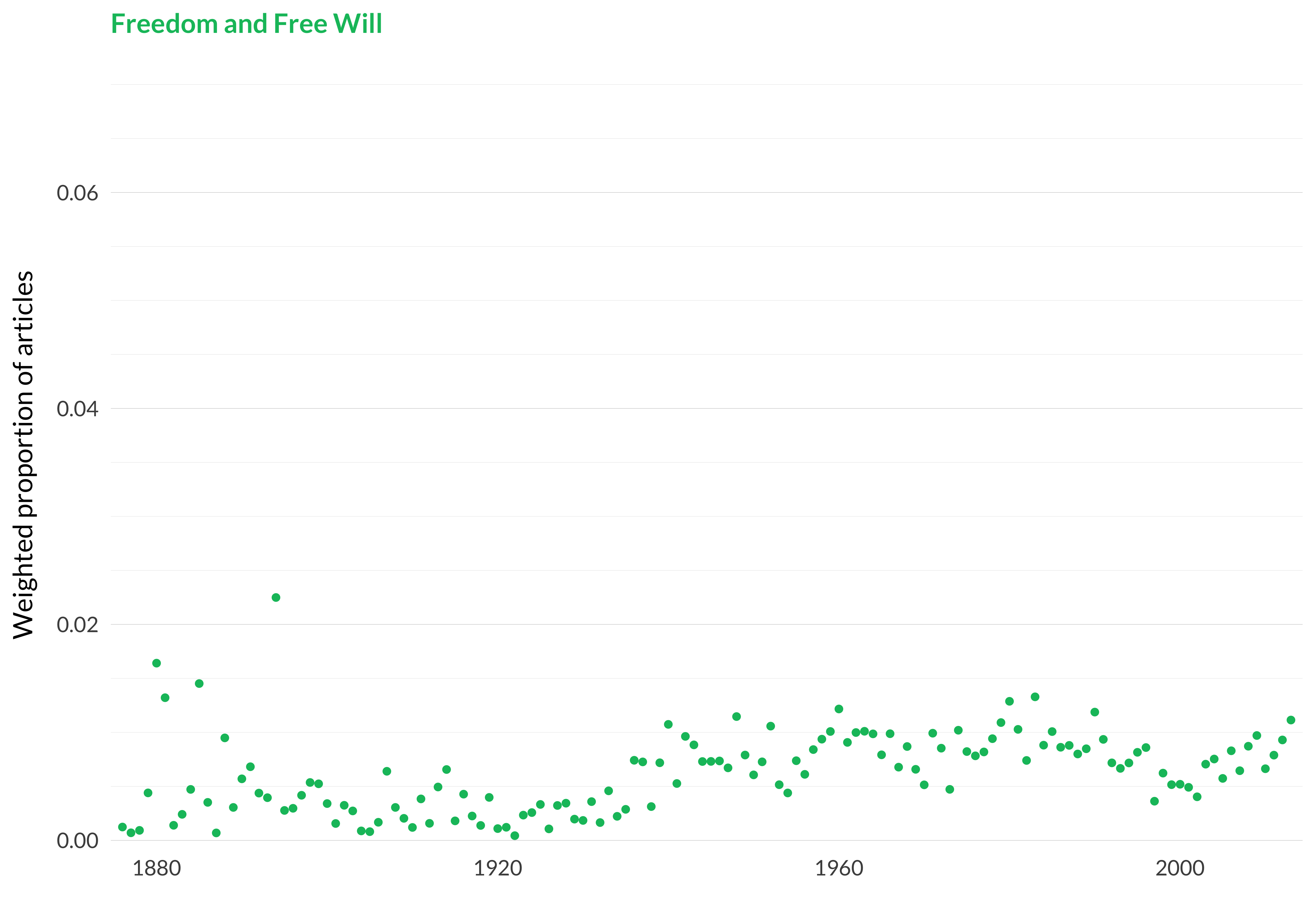2.35 Freedom and Free Will
Category: Social and Political/Ethics
Keywords: freedom, freely, autonomous, free, autonomy, libertarian, interference, responsibility, coercion, liberty, responsible, determinism, agency, control, voluntary
Number of Articles: 274
Percentage of Total: 0.9%
Rank: 57th
Weighted Number of Articles: 240.8
Percentage of Total: 0.7%
Rank: 70th
Mean Publication Year: 1972.6
Weighted Mean Publication Year: 1973.5
Median Publication Year: 1974
Modal Publication Year: 1959
Topic with Most Overlap: Ordinary Language (0.0618)
Topic this Overlaps Most With: Frankfurt Cases (0.0352)
Topic with Least Overlap: Radical Translation (0.00036)
Topic this Overlaps Least With: Temporal Paradoxes (0.00031)

Figure 2.86: Freedom and free will.

Figure 2.87: Freedom and free will articles in each journal.
Comments
One of the big fears I had doing this project was that the model would get confused between different uses of the one word. We’ve already seen the model get confused by terminological changes that don’t reflect philosophical changes. But that’s not a deep problem; it’s possible to just manually add the generated topics back together. But common terminology for the same idea is harder to deal with.
And it’s what is presented here. This topic includes work on political freedom and work on free will. It doesn’t help that both fields spend a lot of time talking about libertarian views. And it really doesn’t help that some people, perhaps not that many but enough to confuse the model, think there are deep connections between the fields. Fortunately there turns out to be a way to handle this problem. I’ll go over this when I get to sets and grue, but the short version is that building a two-topic LDA out of the articles in this topic lets me more or less split apart the articles on political freedom from the articles on free will.
I’ve classified the free will papers as ethics, although I think a lot of the people working on the topic would have thought of themselves as doing metaphysics. Certainly when I was a student we covered free will in intro metaphysics classes, not intro ethics classes. But it seems to me this is clearly about ethics, and the recent trend toward looking much more closely at the nature of responsibility, especially in light of empirical discoveries about the mind and brain, makes this classification much more natural.
Note that this is very much not the last of free will. There will be an entire topic devoted to Frankfurt cases. And some of the work on responsibility comes up in the several ethics topics. So don’t take these graphs as any kind of measure of how much coverage free will gets.